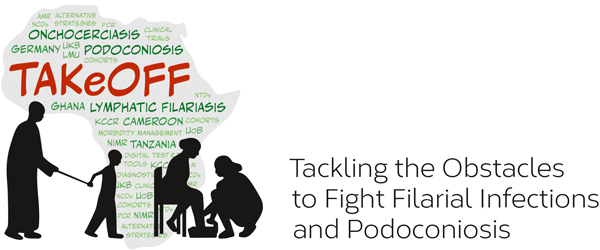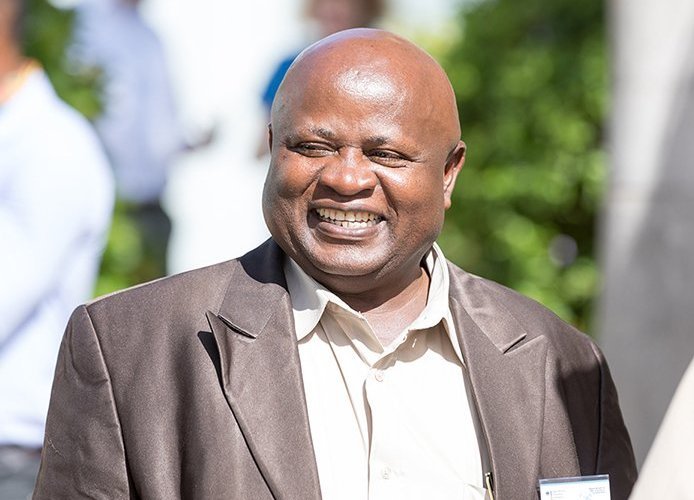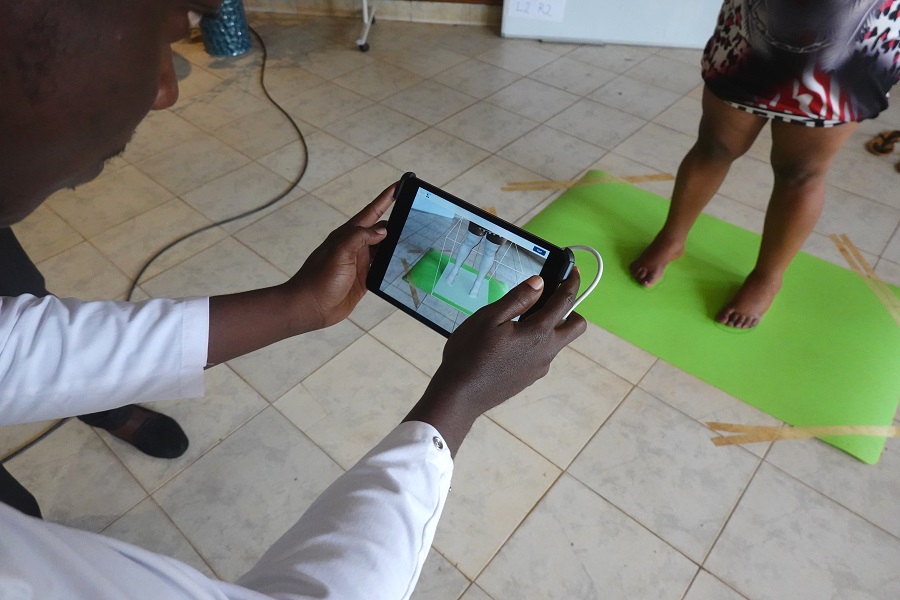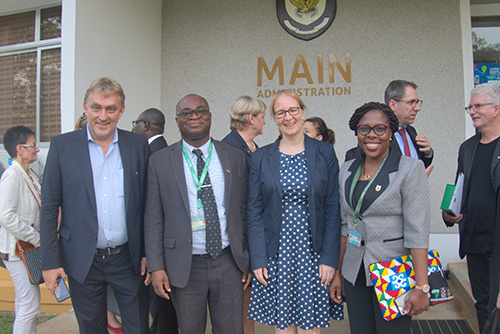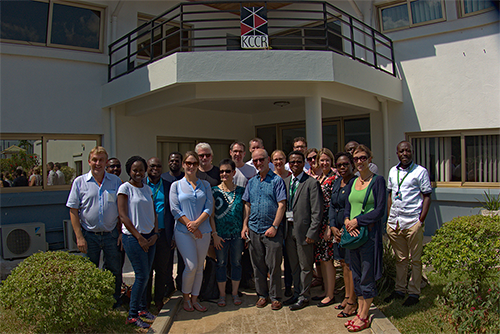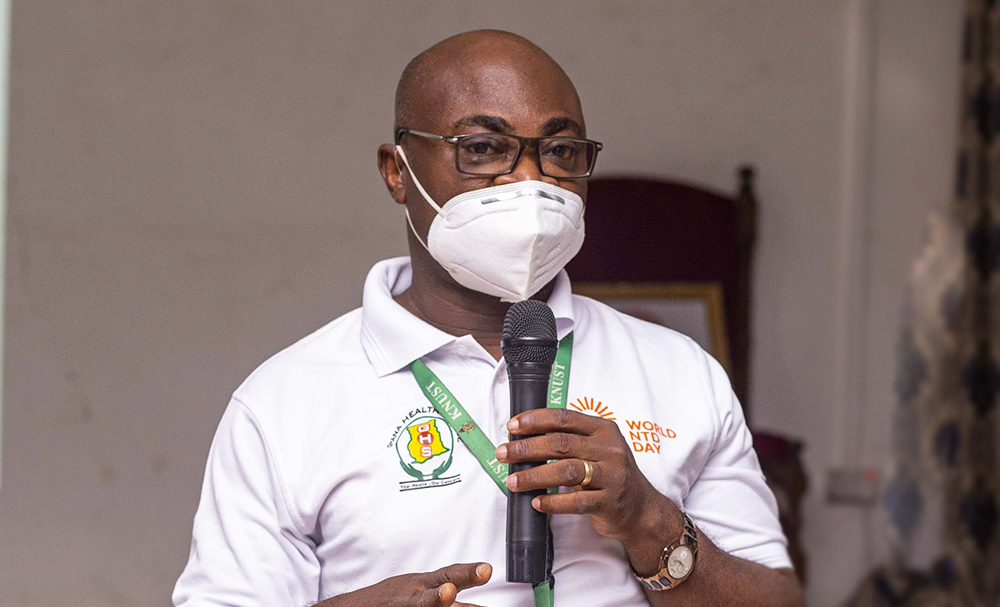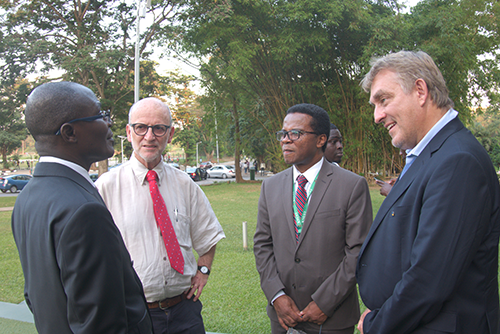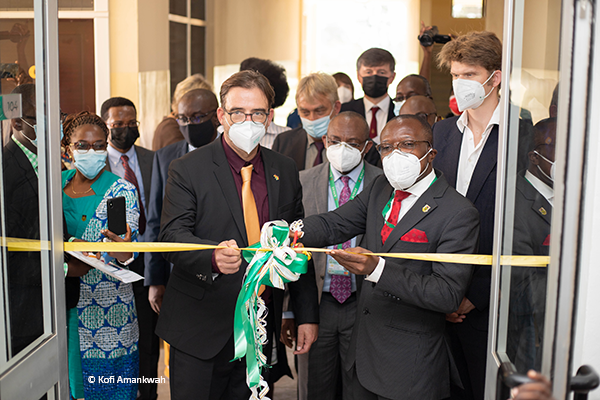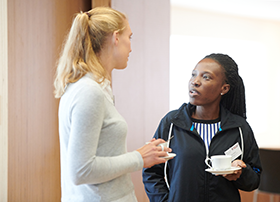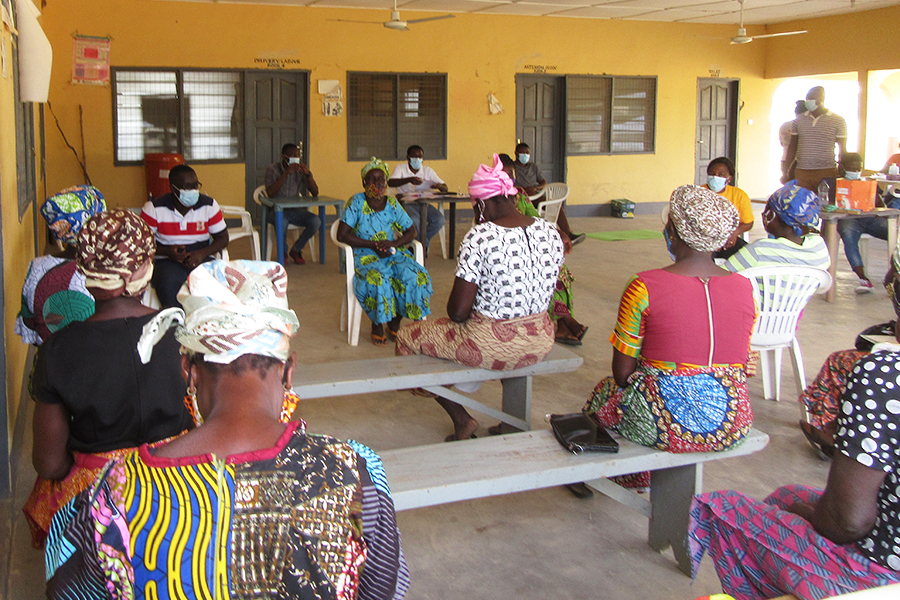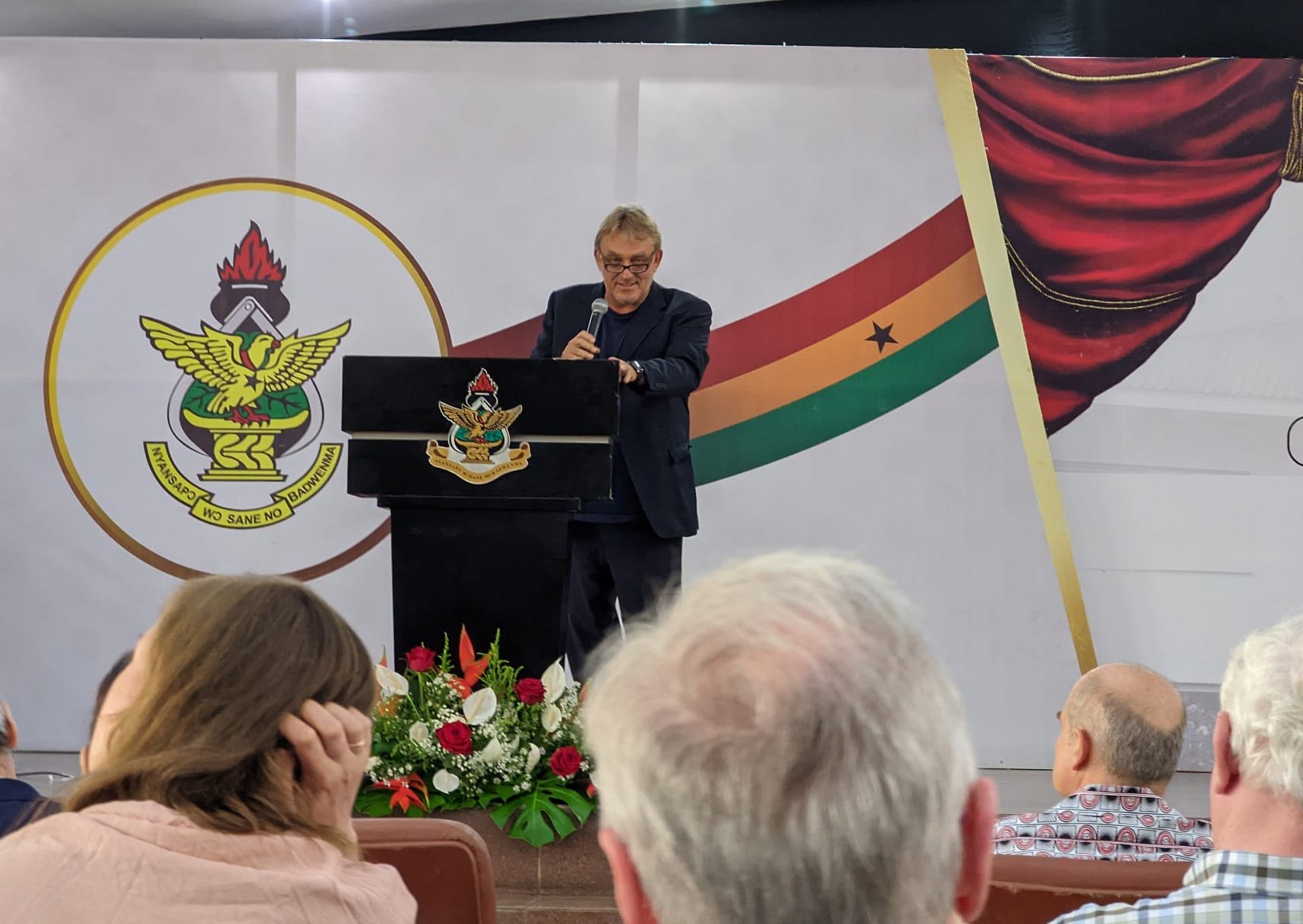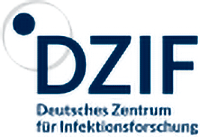NEWS
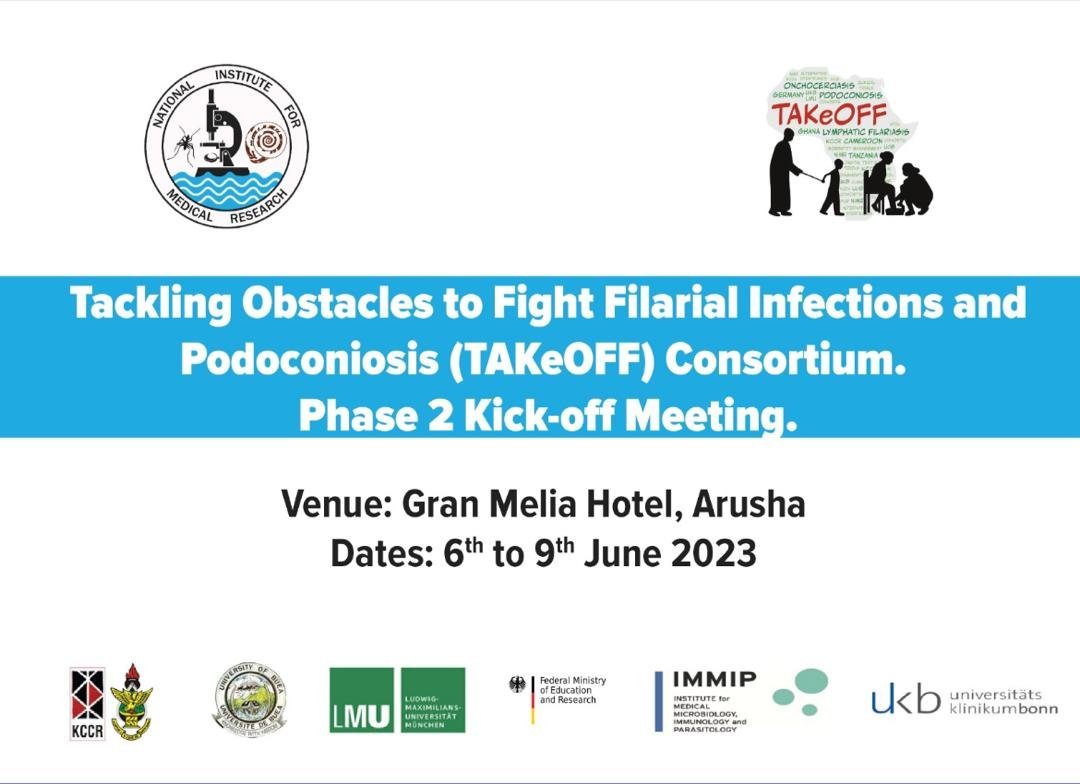
Kick OFF Meeting in Tanzania
The TAKeOFF consortium held its KickOFF meeting in Tanzania.
The Search for New Treatment for River Blindness
The World Health Organization estimates that 1.15 million people have lost their vision due to river blindness, while 220 million require preventive therapy against onchocerciasis. For over 25 years, the Institute of Medical Microbiology Immunology and Parasitology, at the University Hospital Bonn and the Kumasi Centre for Collaborative Research in Tropical Medicine, in Kumasi Ghana have been conduction clinical trials in river blindness and lymphatic filariasis. Prof. Achim Hoerauf and his long-term research partner and friend Prof. Alexander Debrah filmed a short documentary on their work in Ghana. In addition to showing the work done in the field, positive feedback from the community members is also captured in the documentary.
News Highlights
Youtube links
The Search for New Treatments Against Filariasis
